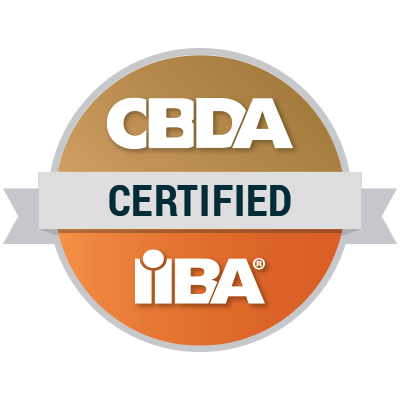CBDA Competencies
Certification in Business Data Analytics IIBA®-CBDA
Competencies and Proficiency Levels per Knowledge Area
Definitions of skill and knowledge levels used.
Practical Knowledge or General Awareness:
Limited practical experience. Expertise is developed in a safe, structured environment (small, less complex efforts) where guidance is both sought and provided.
Basic Knowledge: Has a fundamental awareness of basic skills and knowledge involved in the work.
Understands: Recognizes the key elements of the work and why they are important. However, not expected to have the experience nor skill to execute.
Follows Rules: Adheres to prescribed ways to complete the work but needs rules and guidelines to successfully execute.
The competency elements are grouped into six Knowledge Areas:
Five of the knowledge areas are practitioner-based domains as discussed in IIBA’s Introduction to Business Data Analytics: A Practitioners View; and one is an organizational-based domain from IIBA’s Introduction to Business Data Analytics: An Organizational View.
